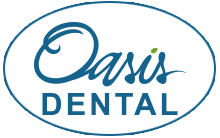 What Do Dentists Do to Relieve Anxiety?
What Do Dentists Do to Relieve Anxiety?
 Medications to Help You Relax
Medications to Help You Relax
 How to Relieve Dental Anxiety
How to Relieve Dental Anxiety
 What to do When Seeing a New Dentist
What to do When Seeing a New Dentist
What Do Dentists Do to Relieve Anxiety?
Patients become anxious about going to the dentist for different reasons. This may include fear of receiving local anesthetic or concerns about the effectiveness of the anesthesia. Negative past experiences also may play a large role in a patient's anxiety, as well as financial concerns.
Your dentist works to reduce your anxiety before you even set foot in the dental office. This process begins when you make your appointment. Your dentist's office staff has been trained to tell you what to expect and to answer any questions you have to ensure that you will be comfortable during your visit. An understanding of your dental services and treatment can help to relieve dental anxiety. Make sure you ask questions and request informational materials, if desired.
Medications to Help You Relax
Some dentists prescribe and administer medications to help patients relax during the appointment. Talk to your dentist about your concerns and ask him or her about the possibility of using dental sedation. Sedation dentistry involves the use of medications to allow you to relax and feel sleepy during a dental visit or procedure. However, sedation is not pain medication, so you may still require local anesthesia, depending upon the treatment. There are a variety of sedation dentistry methods.
The most common types are inhaled sedation, which involves breathing in a mixture of nitrous oxide (laughing gas) and oxygen, and oral sedatives, which are medications taken by mouth. Another type of dental sedation is intravenous (IV) sedation, which is provided by dentists with specialized training in IV sedation. Sedation is safe when administered by dentists who are trained in its use. However, as with any medication, sedation involves a certain amount of risk. It is important to talk to your dentist about these risks.
How to Relieve Dental Anxiety
In general, avoid caffeine before a dental appointment to make you less anxious. Eating high-protein foods also produces a calming effect, unlike sugary foods. During the procedure, focus on breathing regularly and slowly. When they are nervous, some people tend to hold their breath, which decreases oxygen levels and further increases feelings of anxiety. Knowledge is the greatest defense against anxiety. If you have specific fears, talk to your dentist about them. Your dentist can go a long way to dispel any negative or frightening images you may have.
What to do When Seeing a New Dentist
If you are seeing a new dentist for the first time, schedule an appointment for a visit—a visit that doesn't require a cleaning or treatment. Take the opportunity to ask the dentist questions and address your concerns. You'll find that a dentist who takes the time to speak with you about your anxiety will understand when it comes to addressing your other concerns.

Original content of this reprinted with permission of the Academy of General Dentistry. © Copyright 2007-2009 by the Academy of General Dentistry. All rights reserved. Read the original article here.
